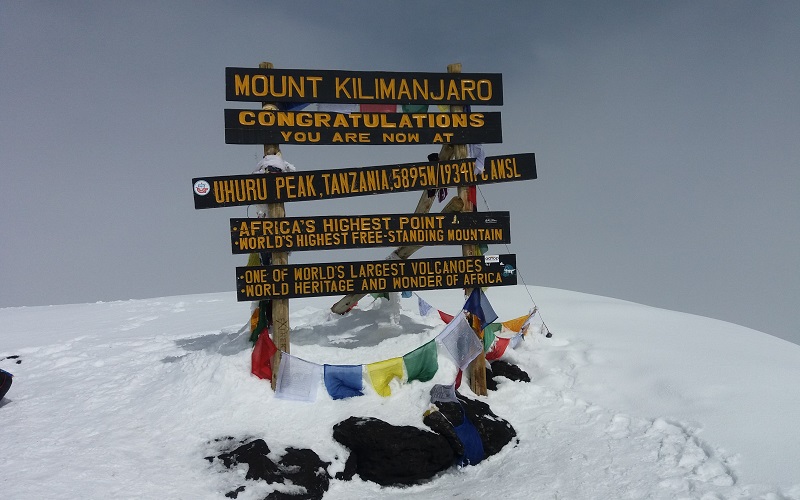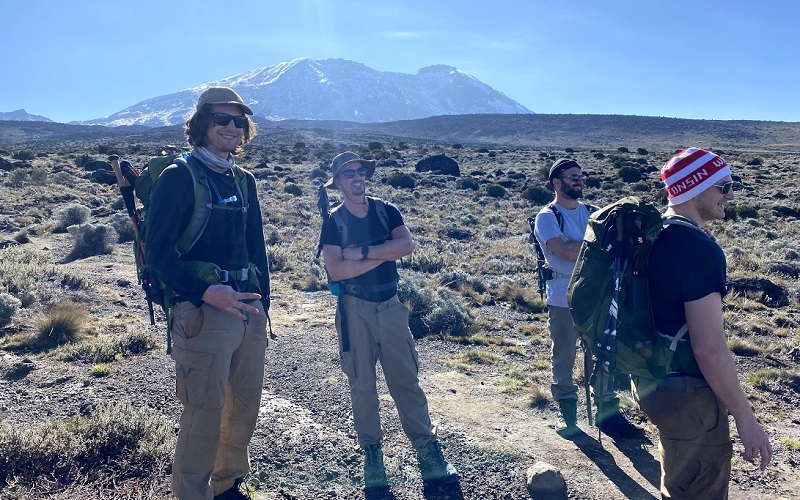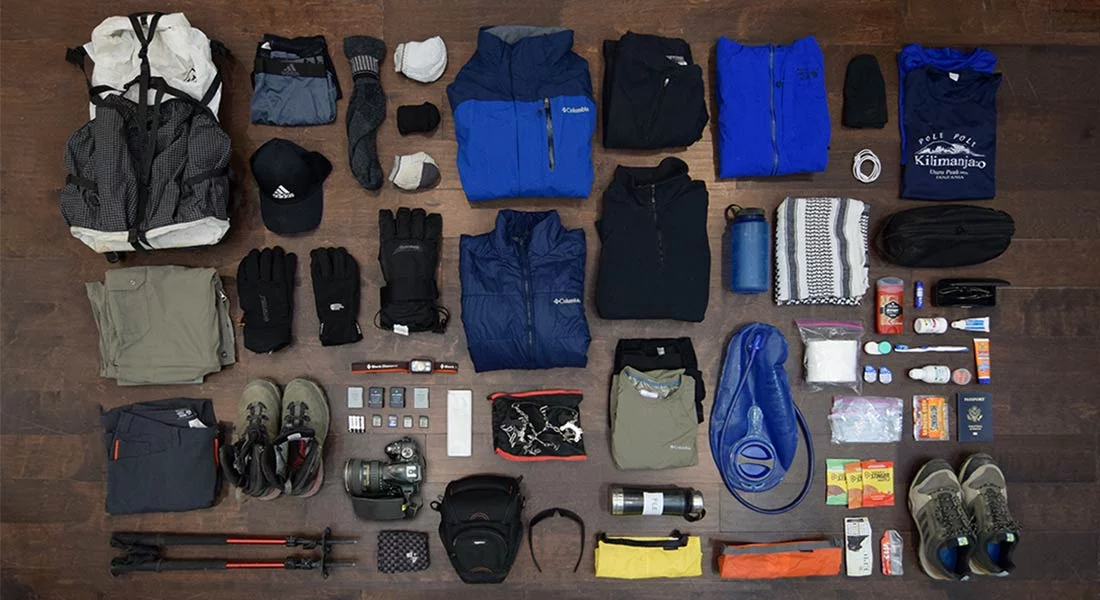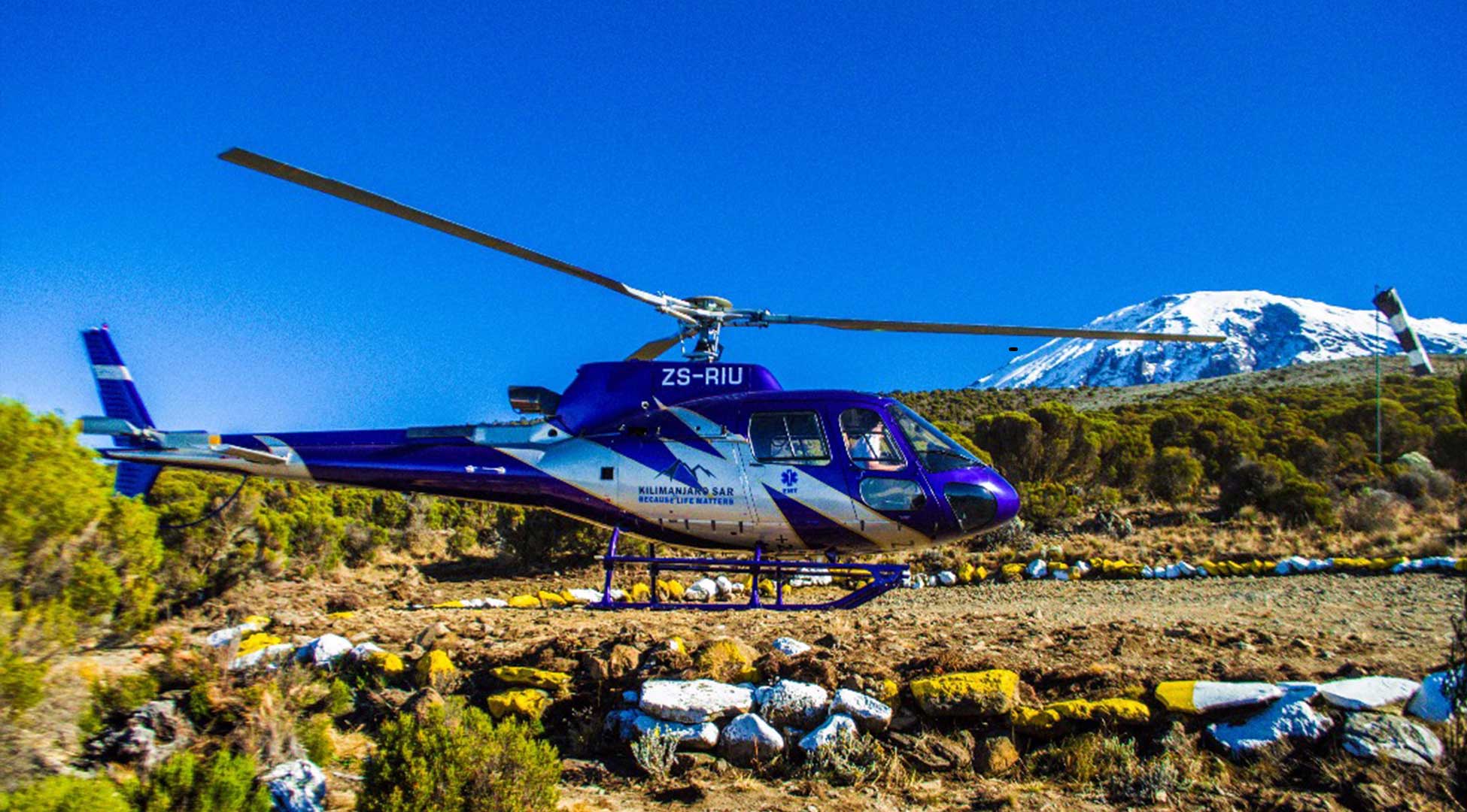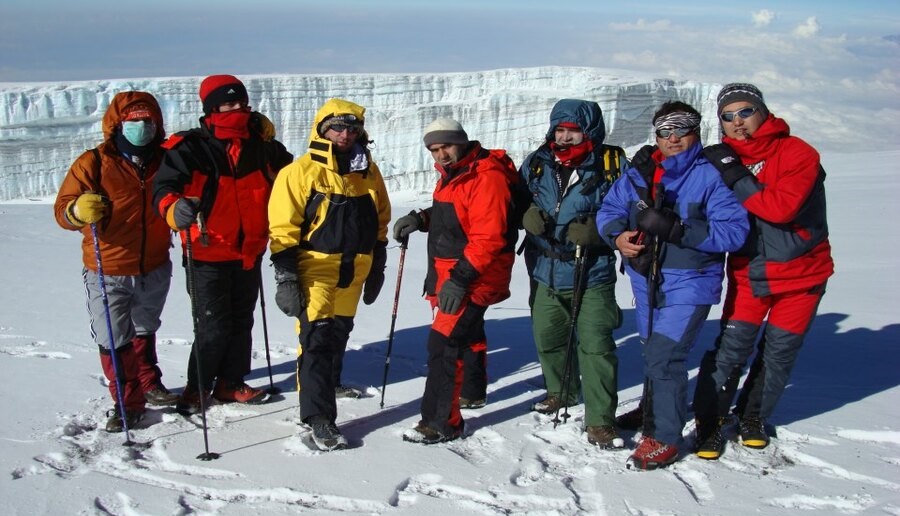Rongai Route
About Kilimanjaro Trekking via Rongai Route (7 Days)
The only path that approaches Kilimanjaro from the north and is close to the Kenyan border is the Rongai route. Despite growing in popularity among climbers, the Rongai route is still rather unpopular. For those seeking a less congested option to the busy Marangu path, those seeking a more secluded trip, and those climbing during the rainy season, Rongai is the recommended route (the north side receives less precipitation). It’s a moderately challenging route on Rongai.
One of the less popular official Kilimanjaro routes is the Rongai path. The benefit of this is that there won’t be many other climbers around and you’ll be walking through pristine nature and breathtaking landscape for the most of the route. The topography of this route makes it difficult to acclimate because you can’t readily follow the “walk high, sleep low” philosophy, which is one of the reasons it is silent.
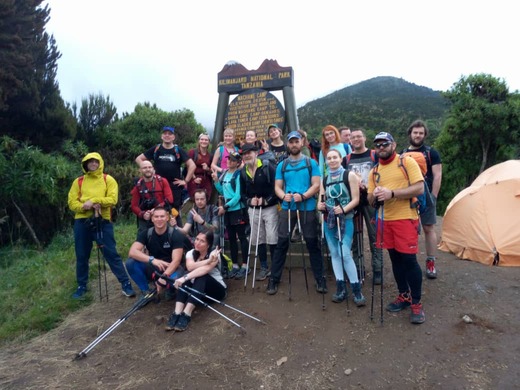
ITINERARY OF 7 DAYS RONGAI ROUTE KILIMANJARO
- Arrival: Airport to Hotel
-
- Pickup at the Kilimanjaro airport and transportation to the pre-reserved accommodation for breakfast. Receive a briefing from the mountain guide that day. On this day, the guide examines the climber's gear to make sure it is appropriate. The guide also determines if the customer has any unique requirements, such as dietary needs.
-
Distance covered: 8km / 5mi
Approx. time taken: 4 – 5 hours
Meals: Breakfast, Lunch & Dinner Included
This morning we will drive to the village of Nale Moru for the starting point of the Rongai route. The first stage of the trek is through farmland and pine forests. You may have chance to see the beautiful Colobus monkeys or if you’re lucky enough, elephants or buffalos en route. Our first camp will be the Simba Camp located at the edge of the moorland zone at 2625m. -
Distance covered: 5km / 3.1mi
Approx. time taken: 3 – 4 hours
Meals: Breakfast, Lunch & Dinner Include
The morning hike is a steady ascent up to the Second Cave Camp located in the moorland zone with superb views of Kibo and the Eastern ice fields on the crater rim. -
Distance covered: 8km / 5mi
Approx. time taken: 4 – 5 hours
Meals: Breakfast, Lunch & Dinner Included
A short but steep climb up grassy slopes offers superb views of this wilderness area. The vegetation zone ends shortly before you reach your next camp at Mawenzi Tarn spectacularly situated beneath the towering spires of Mawenzi. Spend the afternoon acclimatizing and exploring the area. -
Distance covered: 8km / 5mi
Approx. time taken: 5 – 6 hours
Meals: Breakfast, Lunch & Dinner Included
After breakfast we head west and continue ascending on the east side of Kibo crossing the saddle between Mawenzi and Kibo taking 4 to 5 hours to reach Kibo Hut. The remainder of the day is spent resting in preparation for the final ascent, which begins around midnight. Overnight at Kibo hut. -
Approx. time taken: 7 to 8 hours to reach Uhuru Peak, 6 to 8 hours to descend to Horombo
Distance: Approxim 12 – 15 hours
Meals: Breakfast, Lunch & Dinner Included
You will rise around 23h20, and after some tea and biscuits you shuffle off into the night, and this is where the going really gets tough. The first section of the trail consists of a rocky path to the Hans Meyer Cave (5150m), also a good resting spot.
The path then zigzags up to Gillman’s point (5 681m), which is located on the crater rim. This section is very steep with a lot of stone scree, requiring a great physical and mental effort. This is probably the most demanding section of the entire route. Do the Kili shuffle and move slowly. From Gillmans Point you will normally encounter snow all the way up to Uhuru peak (5895m), the highest point in Africa.
Total exhilaration and satisfaction – you made it
Weather conditions on the summit will determine how long you will be able to spend, taking photographs, before the 3 hour descent back to Kibo hut. After a short rest at Kibo hot, you gather all your gear you left behind for the ascent and head down to Horombo hut (3 hours) for your overnight. The return to Horombo hut will seem surprisingly fast compared to the ascent. The total time spent walking on this day is around 14 hours, so be prepared for a very tough day. Later in the evening you enjoy your last dinner (with soft drinks and beer for sale at the camp office) on the mountain and a well-earned sleep, filled with memories and stirring emotions. -
Hiking time: 6 hours
Distance: Approximately 29 km
Meals: Breakfast, Lunch & Dinner Included
After breakfast you continue your descent (6 hours), passing the Mandara hut, down to the Marangu gate. It is strongly recommended not to pay your porters any tips until you and all your gear have reached the gate safely. At Marangu gate you sign your name and details in a register. This is also where successful climbers receive their summit certificates. Those climbers who reached Gillman’s Point (5685m) are issued with green certificates and those who reached Uhuru Peak (5895m), receive gold certificates. You now drive back to Moshi for a long overdue hot shower, dinner descent bed and celebrations!! - Customers get up, eat the complimentary breakfast, and make plans for the day. Clients who are going on a safari get picked up for the safari. Clients are driven to the Kilimanjaro airport when they fly home. Customers traveling to Zanzibar or other nearby locations receive the appropriate assistance.
Day 2: Nalemoru Gate (1990m) to Simba Camp (2625m)
Day 3: Simba Camp (2625m) to 2nd Cave Camp (3480m)
Day 4: Kikelewa Cave (3679m) – Mawenzi Tarn camp (4303m)
Day 5: Mawenzi Tarn camp (4303m) – Kibo hut (4730m)
Day 6 – Kibo hut (4730m) – Uhuru Peak (5895m) – Horombo hut (3705m)
Day 7: Horombo hut (3705m) – Marangu Gate (1860m)
Day 8 :Departure
Price per Person
FROM $ 1,460 USD
--Meet and greet services
--Assistance at the airport
--Mountain guide and porters
--Transfers as specified
--All pre and post climb accommodation as mentioned
--All accommodation and meals on the mountain
--All park fees
--Hut/camp fees and rescue fees
--International flights
--Visas
--Airport tax (pay direct)
--Driver guide
--Mountain guide and porters gratuities
--Climbing gear
--If required can be hired locally
--Drinks
--Dining rooms tips
--Personal travel and baggage insurance
--Telephone bill
--laundry and any items of a personal nature
